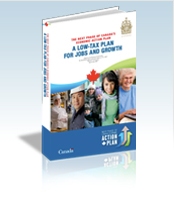With the tabling of a new federal budget just around the corner, I've been trying to find out if any of the
30 recommendations made by the
Task Force for Financial Literacy last month will be addressed.
 |
| Casey Cosgrove, CCFL Director |
Though I haven't been able to find anyone who can give me the inside scoop, it gave a me good excuse to contact people who are deeply invested in financial literacy, perhaps none more so than Casey Cosgrove, Director of the
Canadian Centre for Financial Literacy (CCFL).
The Canadian Centre for Financial Literacy
The CCFL is a division of a registered Canadian charity called
SEDI (Social and Enterprise Development Innovations which, by the way, was the organization that advocated for the creation of a national financial literacy task force in the first place.) Its purpose is to deliver financial education to youth, newcomers, Aboriginal Peoples, women and families with children.
Recently, I was lucky to have a good long chat with Casey Cosgrove about his role as director of the CCFL. What I found particularly interesting about his organization is that
partnership is central to their approach to financial literacy.
While the CCFL's goal is to "improve the financial knowledge and skills of over 230,000 people by 2013," it does not send its staff out to inner-city streets to find at risk Canadians one by one. Instead, the CCFL sends its staff to train front-line workers at a wide variety of social service organizations that are already serving vulnerable groups. CCFL workshops equip front-line workers to empower their clients in the area of personal finance by teaching them how to integrate financial literacy into their day-to-day operations.
Let me tell you a fictional story based on an example that Casey gave me during our discussion.
Fighting the Payday Loan Syndrome
Imagine a twenty-year-old dropout living on Vancouver's Downtown Eastside. Let's call him Zane. Zane is mostly unemployed but he's recently landed a construction job through his connections at a downtown service organization. Because of this upturn in cash flow, Zane is now able to rent a room. But the landlord needs a three hundred dollar deposit and it's a week until Zane gets his first pay cheque.
There's a payday loan store just around the corner from the service organization where Zane often eats dinner. He decides to go to the payday loan store and get his three hundred dollars after he eats.
He eats his meal and as he's about to head out to get his payday loan there is an announcement that there is a money talk starting in five minutes. Zane decides to stay because the talk is being done by one of the organization's front-line workers. In fact, it's the same worker who helped Zane get the construction job.
At the talk, Zane finds out that a payday loan will end up costing him a lot more than $300. He also finds out that the organization has a new "loan" program whereby he can get a $300 advance without paying interest. Zane chooses to take advantage of that advance and gets his room. He also begins to talk to his worker about money. He wants to learn about opening a bank account.
All of this happened because a month earlier the organization had a CCFL trainer come on site to run the front-line staff through their
financial literacy workshop.
Meet Casey
Like I said, Casey, and his work in financial literacy and community market testing, is at the heart of the CCFL. Prior its formation in 2008, Casey put his business background to good use by traveling across Canada to encourage entrepreneurship in vulnerable youth. He estimates that he taught his program "Dollars and Sense" to more than 15,000 young people. Then about six years ago, Casey began training trainers to deliver his curriculum, which a year and a half ago (with SEDI and the TD Bank as a funding partners) blossomed into the CCFL.
As a side note, Casey did tell me that when it comes to training trainers, that it's sometimes easier to work with people who do not have a background in finance. They seem to be more "flexible." And when I asked him the
O'Leary question (what three things would you teach a Canadian kid about money) this is what he said:
- Don't be afraid of money.
- No matter what you do for a living you have to deal with money.
- It's okay to talk about money.
If you belong to an organization that serves vulnerable groups and would like have the CCFL help you incorporate financial literacy into your services, please contact the
CCFL at info@theccfl.ca or phone 416-665-2828.
In the meantime, cross your fingers and say a prayer that there will be something in the March 22nd federal budget to address the recommendations made by the
Task Force for Financial Literacy.
And if you hear anything...email me!
Copyright 2011. Laura Thomas. All Rights Reserved.
For reprint permission contact money@agentstory.net.






